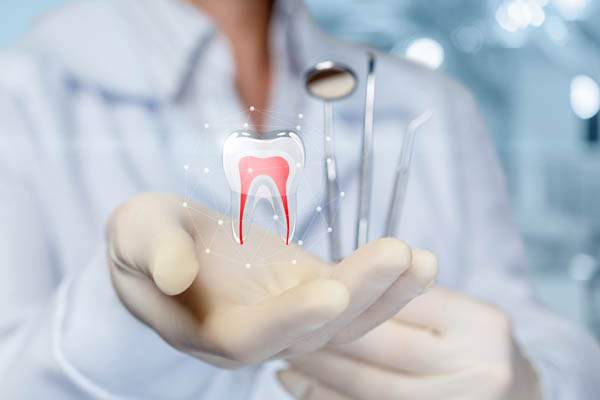What Happens After the Root Canal Procedure?

A root canal treatment can restore your tooth. It is an invasive treatment that aims to remove the damaged or infected pulp. But what should you do after this outpatient procedure? Here are the details on what will happen after a root canal.
When to eat
The dentist will suggest waiting until the effects of the anesthesia fade before the patient drinks or eats. This often takes a few hours after the root canal treatment. The numbness of the gums and tongue might cause the patient to bite the tongue or cheeks. Burning the tongue may also happen if the food is too hot.
What to eat
A root canal treatment will leave the tooth fragile and sensitive. The patient needs to be mindful about the foods to eat when the anesthesia fades. Soft foods are ideal. Below are some of them:
- Cooked vegetables
- Apple sauce
- Pasta
- Frozen yogurt
- Soft cheese
- Peanut butter
- Mashed potatoes
- Flan
- Hummus
- Pudding
- Bananas
- Soft bread
- Sorbet
- Rice
- Soup
- Scrambled eggs
What to avoid
Studies show that root canal-treated tooth weakens after the procedure. The patient must be more careful with choosing the right foods. Nuts, seeds, and sticky foods should be off the list. These foods could damage or dislodge the protective dental crown of the treated tooth.
The treated tooth is also sensitive after the dentist places the temporary crown on the tooth. Stay away from very hot or very cold drinks and foods. Doing so can help prevent sharp pain in the tooth. The dentist will also suggest avoiding these foods for a while, right after the permanent crown placement.
Reminders after the root canal treatment
Some discomfort is normal right after the treatment. The patient can manage this by taking over-the-counter pain relievers. Refrain from flossing around the treated tooth because this could dislodge the crown. Gently brush the treated tooth.
Gargle a warm salt solution three times each day. Let it stay in the mouth for a minute, and then spit it out. Follow the dentist’s instructions when taking antibiotics. The patient will take antibiotics to lower the risk of infection. Finish the course of antibiotics to make sure the possible infection is gone.
It is normal for part of the temporary crown to break off or wear away. However, call the dentist if it dislodges. The dentist will replace it. Chew on the other side of the mouth. There is no need to be alarmed because of the tenderness in the treatment area right after the root canal procedure. This will fade as the patient takes medications.
Placing the permanent dental crown will be the last step after the root canal. This custom-fit restoration will strengthen the treated tooth’s bite. It will also protect the tooth from future decay or damage. It is important to have the dental crown right away. Delaying it may result in a dental fracture or tooth loss. The dentist will make some adjustments to the permanent crown so that the patient can have a comfortable bite.
Be sure to follow the dentist’s reminders after the root canal treatment
Every dentist’s main goal is to keep teeth intact. A root canal will try to clear the cause of the problem and rebuild the tooth even if there is damage or infection. Knowing the proper aftercare practices can help you care for your treated tooth well. Working with your dentist can help you enjoy your new smile right away.
Request an appointment here: https://www.ismilespa.com or call iSmileSpa at (831) 440-3730 for an appointment in our Santa Cruz office.
Check out what others are saying about our dental services on Yelp: Root Canal in Santa Cruz, CA.
Related Posts
Seeing a preventive dentist is a vital part of your oral healthcare routine each year. However, many people skip this essential step because they do not want to spend time at a dental office. Fortunately, a preventive dentist provides many valuable services that can help your smile last a lifetime and stop future issues before…
Using preventive dentistry to keep your teeth and gums healthy may be difficult at times. It feels better and costs less to practice prevention rather than get the cure. Many dental treatments for saving teeth are expensive and labor-intensive. Doing your part in preserving your teeth can also save your general health. If you want…
Preventive dentistry goes beyond undergoing dental checkups and cleanings twice a year. Read on to learn how preventive dentistry can protect against various oral health issues. You ensure a lifetime of good oral health and ultimately your general health if you keep those regular checkups. Preventive dental care checkups help you stay proactive in many…
Knowing when you need an emergency dentist can help save teeth, preserve oral health, and prevent serious complications. From sudden tooth pain to dental trauma, understanding the signs that require immediate attention helps ensure timely and effective care. Learning more about the role of an emergency dentist can prepare patients to act quickly in critical…
